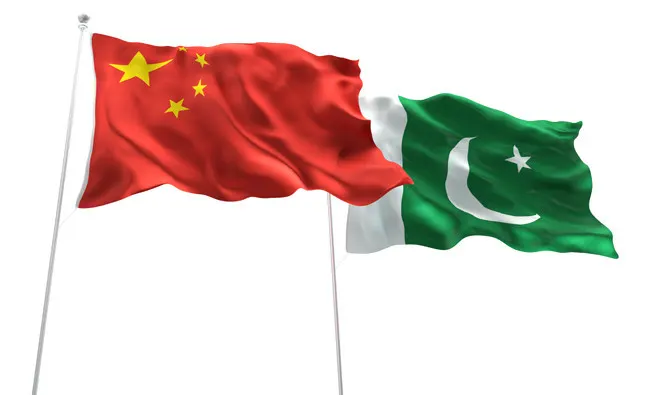In 2013, the Belt and Road Initiative (BRI) was launched by the Chinese leadership, aimed at enhancing regional connectivity to foster economic cooperation, people-to-people contact and cultural understanding. Realizing the importance of regional connectivity in the context of geo-economics, the China-Pakistan Economic Corridor (CPEC) was launched in 2015 as a flagship project of BRI. Significantly, this corridor is the safest and shortest in all ways. Currently, the CPEC project is about to enter its second phase, commonly termed as CPEC 2.0.
While the first phase focused on developing infrastructure, addressing the growing energy needs and building a major network of roads and port facilities, the second phase adopts a more holistic approach. Accordingly, five new corridors will be undertaken in phase two of CPEC: a Growth corridor, a Livelihood-enhancing corridor, an Innovation corridor, a Green corridor, and an Open corridor. Furthermore, it aims to attain sustainable development goals and transform the traditional financial market into a digital market system. In addition to these objectives, there is a special focus on initiatives that can help eradicate unemployment and create job opportunities.
The Growth Corridor aims to bolster the efficiency of the industrial sector along with the development of economic infrastructure, where much progress has already been attained. For instance, four mega projects have been completed in Gwadar city. Under the umbrella of the Growth Corridor, Special Economic Zones (SEZs) are under development, namely Rashakai SEZ in Khyber-Pakhtunkhwa (KP), Dhabeji SEZ in Sindh and Bostan Industrial Zone in Balochistan. These SEZs have the potential to attract significant foreign investment and generate many direct and indirect jobs.
The Livelihood-enhancing corridor focuses on enhancing agro-based production capabilities and availability of better food commodities. It also includes the upgrading and modernization of agricultural equipment and tools. With the creation of agricultural processing zones, the final product will be of high value. Moreover, this will be followed by the training of farmers and agricultural labour, enhancing their skills to contribute more effectively to crop production. Involving the youth in modern agricultural businesses will greatly reduce rural-to-urban migration.
The Innovation corridor aims to promote technological advancement, foster digital transformation and create an environment for a technology-driven financial market while enhancing the scope of IT. The development of an IT Park in Islamabad with state-of-the-art facilities is underway within the CPEC framework. The IT Park will include a well-stocked library, software houses and a dedicated workspace for freelancers. Expansion of the fiber optic network is also underway, which would enhance digital connectivity across the country. The creation of IT parks and innovation hubs has the potential to create a wide range of jobs in multiple technology-related sectors and firms.
In response to the challenges posed by climate change, the Green Corridor is specifically designed to address emerging challenges such as global warming. The Green Corridor aims to develop eco-friendly projects that can contribute to mitigating carbon emissions and coping with rising temperatures. Progress has already been achieved in renewable energy, wind power and hydropower projects within the Green Corridor.
The Open Corridor is designed to enhance the connectivity framework, expedite trade and boost the logistical transportation system between China and Pakistan. Research indicates that this corridor will ensure uninterrupted trade activities and fast service delivery between the two countries. For instance, Gwadar port is being developed as a deep-sea port with the potential to accommodate large cargo ships without hindrance. Due to its strategic location, it has the potential to become an economic hub.
Despite China and Pakistan’s renewed commitment, CPEC still faces challenges in the form of extensive propaganda campaigns. Disinformation and fake news propagated by India are damaging the overall growth of CPEC, as highlighted in the EU DisinfoLab’s 2020 report. Anti-CPEC forces frequently claim that the project has failed to live up to its promise as a game-changer, but such claims lack substantiation. India, with border disputes with both China and Pakistan, actively seeks to undermine connectivity projects led by the two nations, resorting to propaganda campaigns and supporting terrorism against Pakistan.
In conclusion, CPEC 2.0 has the potential to transform the regional geo-economic landscape through its new corridors. This renewed strategy of China and Pakistan could enable this connectivity project to develop into an international transit route connecting diverse civilizations through trade. It can also help mitigate prevailing disagreements among regional stakeholders and foster bilateral and trilateral relations through shared economic benefits. However, achieving these goals requires both nations to establish a joint mechanism to counter propaganda against CPEC, highlighting the successes achieved to date. CPEC, an initiative with revolutionary transformational potential, can reach its zenith if all stakeholders agree on viewing Pakistan as a prosperous country.










